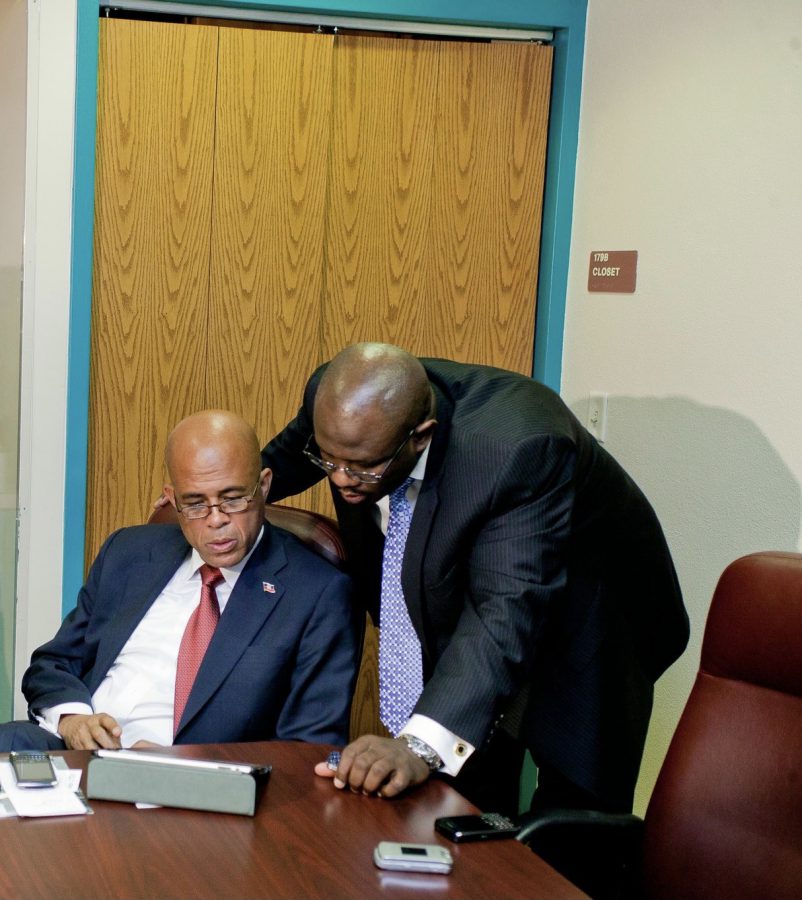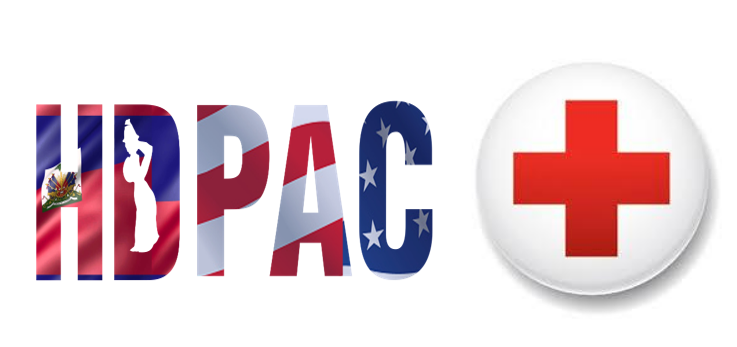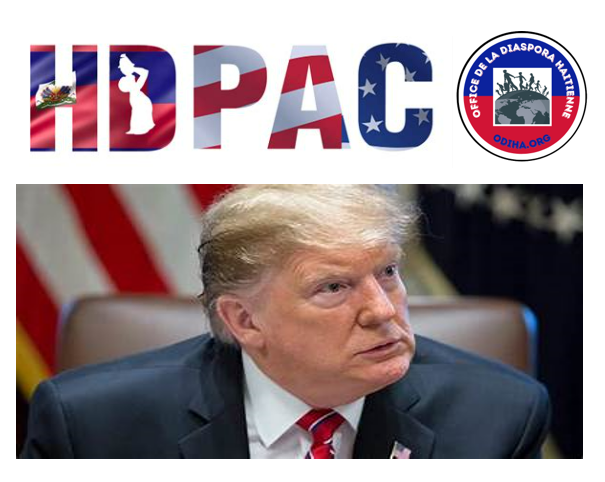Haiti’s chance for development to be on par with industrialized nations requires bold innovative initiatives. Currently, Haiti is near the bottom on all human social indicators. We are number two in the world for brain-drain (i.e., intellect expatriating to other countries). We are number two in corruption (poverty breads corruption). We are in the top ten countries with the highest infant mortality rate. We are in the top five with most illiterate people, and in the top seven with the highest inequality between the haves and the haves-not.
Sadly, Haiti has been a positive experiment only in government’s failures: Failure to develop and build capacity of a bureaucracy to support the masses, to attract foreign investment, to develop economic initiatives and to protect the environment.
Haiti has a serious problem of deforestation. Nearly one in three of the trees has been cut down to make charcoal, causing land erosion. Most farmers have abandoned their lands in the face of a plethora of foreign goods (rice, sugar, oil, eggs, etc.) Unable to compete, they had to give up their plots of land. Food security is an existential threat to the country, because nearly 60% of goods consumed come from abroad, mainly from Haiti’s trading partners: USA, Canada, and the Dominican Republic. Since Haiti produces very little, the trade deficit is abnormally high, favoring the partner countries.

The problems of Haiti are multi-faceted. They have accumulated over time because of a lack of vision and of innovative bold ideas. And the problems have been exacerbated by a false nationalism, which was espoused during the 1950’s to combat racism. It was based on the notion that Haiti has been the only black country that waged a successful slave revolt. Therefore, its sovereignty is its raison d’être, even at the cost of social advancement and economic development. Unfortunately, the older generations still cling to this idea, culminating in a sort of “brain freeze.” However, in the age of globalism, Haitian nationalism, even the idea of nationalism as such, is obsolete.
I am proposing seven issues for a referendum to be held in Haiti in 2022. These seven issues, if approved by popular vote, would liberate the country from its social, psychological, political, and spiritual chains. At first, these ideas may be rejected by some, but it is incumbent upon individuals of goodwill to educate the people about the wisdom of trying innovative ideas. As to those who would cling to sovereignty and nationalism in their determination to defeat bold ideas, they also must be educated.
Haiti has been marred by its own psychological profile on nationalistic demeanor, recognizing nothing, not even ideas that could lead to economic development, unless that idea is tied to nationalism. The most pressing issue is to help people understand that for 200 and plus years nationalism has not helped in making their lot better – and never will. Their social status has gone from bad to worst. Therefore, enterprising young Haitians, whether men or women, only wish to leave the country, as soon as possible for such destinations as the US, Canada, Brazil, Chile, even the Dominican Republic, or any other foreign country that looks promising. The country does not offer a future to the youth, and about 90% of those that have been educated tend to leave, leading to the brain drain. Evidently, we must change course and find another way to address the issues.
First: Adoption of the US dollar as Haiti’s official currency. A currency change would alter the social dynamic and the economic equation. It would also help the government with trade deficits and attract investors. The economic advantage simply would be amazing and undisputable. Take the case of Ecuador, the leadership of which adopted the US dollar as their country’s currency. Their thriving economy is undisputable.
Second: Haiti has banned its best and brightest from participating in the political and social life of the country. A referendum on allowing any person born in Haiti or out of Haiti but of Haitian parentage to participate in national political life without reservations would help to attract a different group of people with relevant experience, education, and knowhow.
Third: Haiti’s problems loom larger for lack of continuity in government. A single five-year term for a government is not long enough to resolve any major problem. A president needs at least two consecutive terms to allow for policy development, implementation, and measured success. Therefore, a referendum on a constitutional amendment allowing for two consecutive terms would help with political stability and economic development.
In addition, Haiti’s electoral system must be revamped to allow each department to run its own local elections, including for national offices. The head of the national Permanent Electoral Commission (French acronym CEP) must be an elected position proscribed by the constitution with a single ten-year term. Political parties must be limited to no more than three. For political parties to be recognized and able to participate in any election, they must have at least half a million registered members.
Fourth: Any investor, foreign or domestic must be able to invest in Haiti, purchase property, without any limitations whatsoever. Any investor must be able to register and operate a company, according to Haitian laws, without the need for a Haitian partner. Most countries in the world allow investors to establish themselves without much hindrance. In fact, some countries even provide residential status for anyone investing more than a million dollar.
Fifth: Haiti’s property recording system is archaic, borrowed from the French. This recording system provides for corruption and theft and double sale that creates several legal issues that can be prevented with a simple recording system. The English recording system of property is simple and must be adopted by Haiti. The laws governing such a system is determinative and will encourage foreigners to invest in the country. Moreover, the Haitian authorities must address the issue of “cadastre,” or an official land registry system that has not been done since independence. Otherwise, foreign investors will be reticent to acquire land in Haiti. Revamping the system of property ownership will also solve a major problem whereby certain individuals may sell the same property more than once. With every locality maintaining a registry of ownership and the person owning that plot of land, it would be impossible for some sharpies, in cahoots with corrupt notaries, to sell properties they do not own.
Sixth: Haiti’s banking system is not only archaic and chaotic, but is mired in corruption and money laundering, causing the international community to have doubts regarding the banking system. The country needs to adopt a new banking system on par with other countries. With the adoption of the dollar as the official currency, the banking system would have to change, encouraging new investors. It would also put a brake on corruption and other crimes. Even with a referendum, the legislature would have to adopt new laws to make this a reality. Total revamping of Haiti’s economy requires a bold innovative approach.
Seventh: A foreign policy realignment is long overdue. For years Haiti has been a champion of Taiwan, a situation that cannot be allowed to continue. Many countries, including the Dominican Republic, have recognized mainland China, and have established bilateral relationship with it, instead of with Taiwan. Haiti must reconsider its relationship with Taiwan. As an advisor to Michel Martelly, in 2010-12, I had proposed to the president that Haiti should reconsider its relationship with Taiwan. Haiti has more to gain with a bilateral relationship with China than with Taiwan. It is well known that the Taiwanese have always been able to bribe successive Haitian governments to retain their preferred status with Haiti. But any Haitian government must do what is in the best interest of the Haitian people. Undoubtedly, a relationship with China will greatly benefit Haiti.
Those issues, though not exhaustive, will help put Haiti on the path to stability and economic development. Much has been said and written about the Haitian government and its ability to provide for the people. As someone who was part of a government, I know this is possible. We only need a visionary leader, who is ready to listen to advice provided and to take bold action.
The writer can be reached at Manny@haitiobservateur.com






